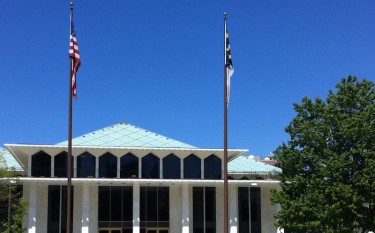
Early Thursday afternoon, the N.C. General Assembly gave final approval to a bill that repeals House Bill 2 but also prohibits state agencies and local governments from adopting ordinances that regulate bathroom access, and prohibits local governments from adopting policies that regulate private employment, and public accommodations. The highly controversial measure, HB 142—Reset of S.L. 2016-3, passed the State Senate by a vote of 32-16 and the State House by a vote of 70-48 and was signed into law by Governor Roy Cooper (D).
In testimony before the Senate Rules Committee Thursday morning, NC Family President John L. Rustin stated, “NC Family continues to believe that House Bill 2 is the strongest bathroom privacy and safety law in the nation, and we urge members of the General Assembly to reconsider support of the measure before you, and instead stand strong in defense of House Bill 2.”
Proponents contend that HB 142 “resets” the state’s bathroom policy to where it was before the Charlotte City Council passed a set of highly controversial ordinance changes in February 2016. These changes would have allowed men to enter women’s bathrooms, showers and changing rooms, and it was this action that prompted state lawmakers to pass House Bill 2. The understood standard prior to this time was enumerated by a 2009 State Court of Appeals ruling, which said that a boy who entered a girl’s locker room was guilty of trespassing. State laws regarding indecent exposure, secret peeping, and others may also apply depending upon the circumstances.
HB 142 also puts into place a moratorium on the ability of cities and counties to enact nondiscrimination ordinances relating to private employment practices and public accommodations until December 2020. This provision essentially delays further consideration of local nondiscrimination ordinances by local governments for nearly four years, but many fear it will remain a constant issue hanging over the heads of state lawmakers until that time.
Finally, proponents of HB 142 argue that repealing HB2 will wipe the legal slate clean because multiple lawsuits that have been filed against HB2 during the last year will essentially be wiped off the books. A primary motivating factor on this point is that the U.S. Court of Appeals for the Fourth Circuit recently scheduled a hearing on the primary lawsuit against HB2 for mid-May. The Fourth Circuit has not been a favorable venue for issues of this kind in the past.
“We are deeply disappointed that many of our state lawmakers have been swayed by the bully tactics of organizations like the NCAA, who seem intent on using their national standing to push a radical social agenda,” said Rustin. “On the other hand, we are extremely grateful for those courageous members of the State House and State Senate who stood resolute against tremendous pressure to defend privacy, safety and dignity of citizens across North Carolina.”